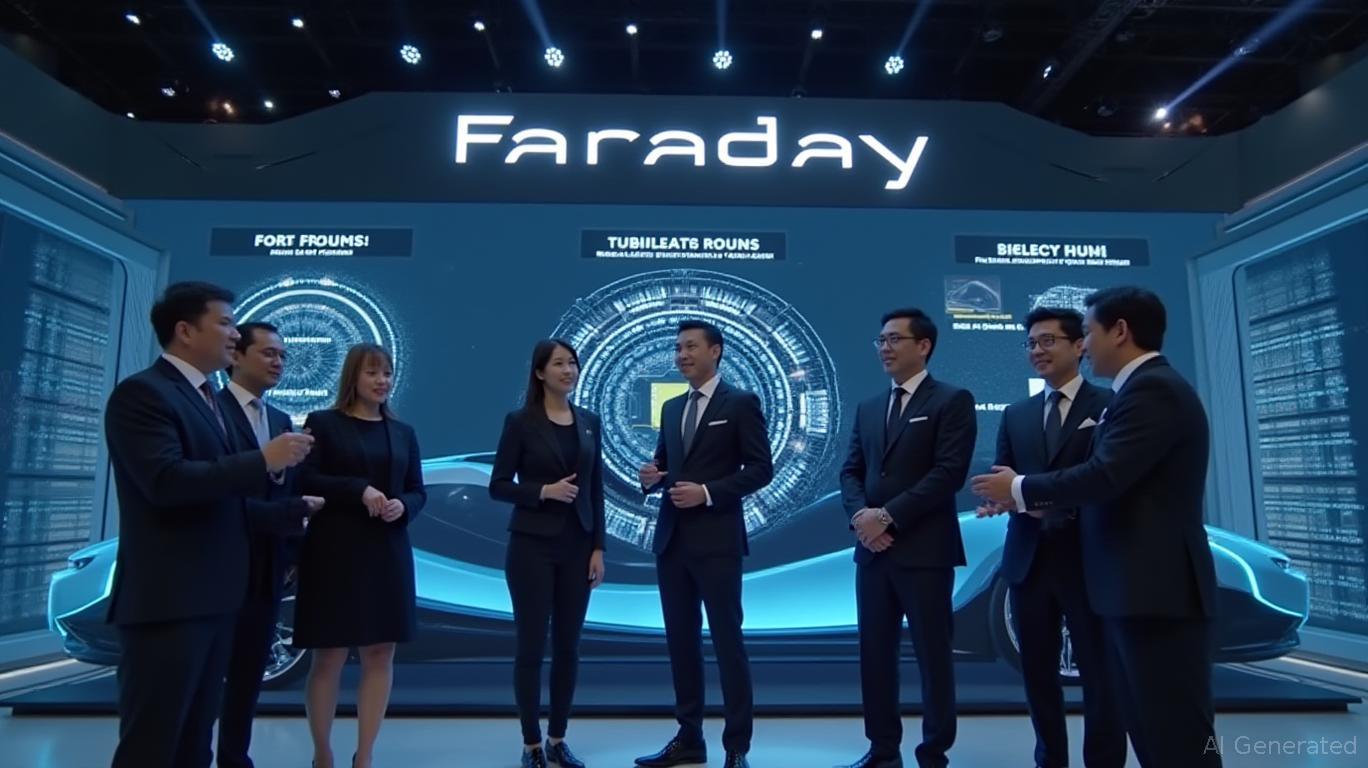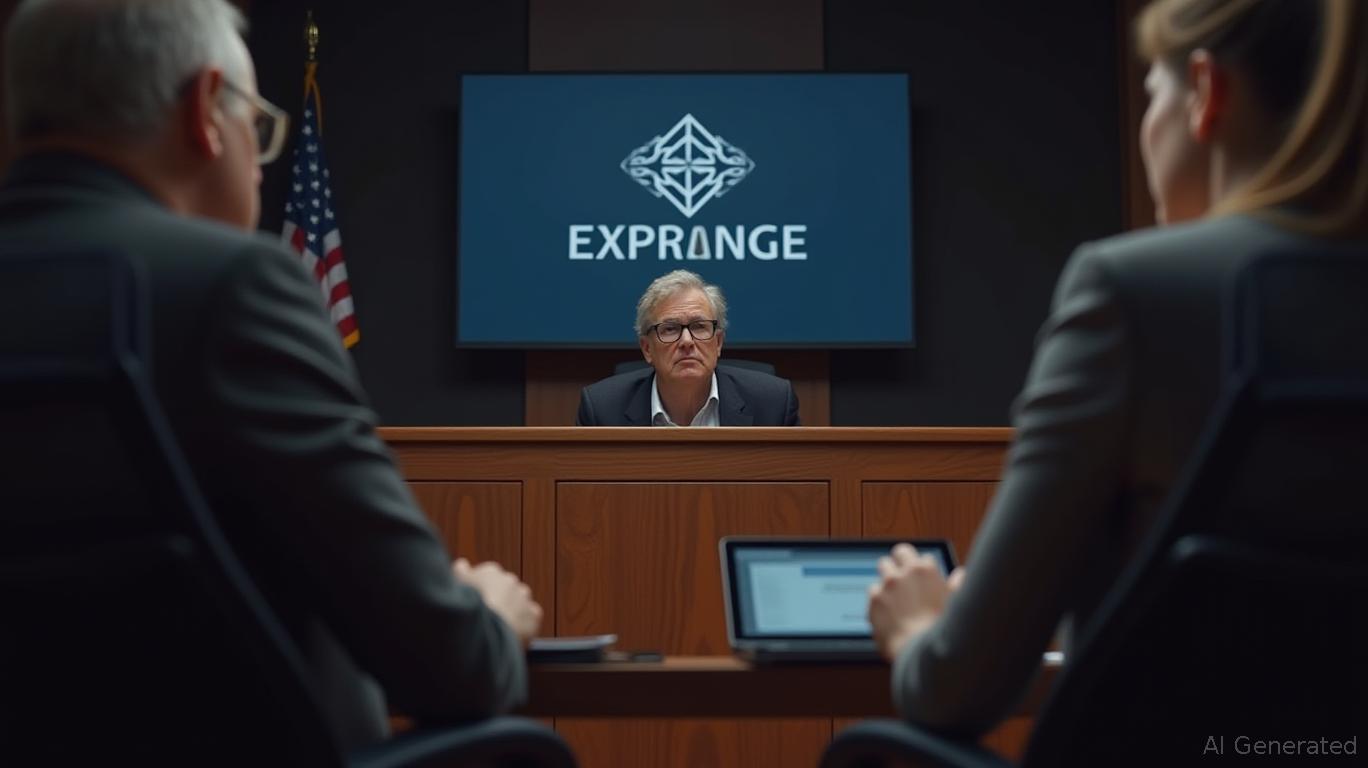Privacy Coins Hit $24 Billion Market Cap as Advancements Surpass Regulatory Efforts
- Privacy coin market hits $24B valuation as Zcash (ZEC) and Monero (XMR) surge 400% and 120.2% in 2025, outpacing broader crypto markets. - Zcash's Halo 2/Orchard upgrades eliminate "trusted setup" risks, attracting $85M+ in institutional investments via products like Grayscale Zcash Trust. - Monero maintains $4.34B market share with mandatory privacy features but faces EU AMLR ban starting July 2027, highlighting regulatory challenges. - Emerging projects like Aleo (ALEO) push privacy-as-a-service models
The total value of privacy coins has soared to an unprecedented $24 billion, fueled by a resurgence of investor enthusiasm for blockchain privacy solutions and progress in zero-knowledge cryptography.
Zcash’s impressive gains are attributed to recent technical improvements and a shift toward making shielded transactions the default. The introduction of Halo 2 and Orchard protocols in 2025 removed the need for a "trusted setup" and enhanced scalability, establishing Zcash as a core platform for privacy-driven DeFi projects. These advancements, along with the dramatic price increase, have reignited institutional interest—evidenced by the Grayscale Zcash Trust now managing assets exceeding $85 million, as highlighted in the Zcash deep dive. Despite these achievements, Zcash still contends with strong competition from Monero, which leads the market with a capitalization of $4.34 billion.
Monero’s robust performance in 2025 has reinforced its reputation as the “privacy king.” The network overcame an 18-block reorg in September 2025 and rebounded to $299, marking a 30% recovery from its August lows. Its built-in privacy technologies—ring signatures, stealth addresses, and RingCT—ensure every transaction remains untraceable by default. This has made Monero the preferred choice in areas demanding high levels of anonymity, such as darknet commerce and international money transfers. Nonetheless, regulatory challenges remain, with the European Union preparing to prohibit privacy coins under its AMLR rules starting July 2027, as detailed in the Monero rise report.
The privacy coin sector is also witnessing the rise of new contenders. Aleo (ALEO), a next-gen privacy blockchain utilizing zero-knowledge proofs, has drawn both developer and institutional interest with its “privacy-as-a-service” approach. By processing computations off-chain and recording only proofs on-chain, Aleo seeks to broaden privacy applications to include features like sealed-bid auctions and confidential DeFi positions. At the same time,
Regulatory ambiguity continues to be a double-edged sword for the sector. While prohibitions and exchange removals have limited access, they have also heightened the appeal of privacy technologies. Monero’s community-led development, including a $1 million crowdfunding campaign for infrastructure improvements, underscores the decentralized spirit of the industry. In contrast, Zcash’s “compliant privacy” model—which enables selective transparency through viewing keys—may serve as a bridge between regulatory demands and user privacy, as discussed in the Zcash deep dive.
Looking forward, the future of privacy coins will depend on how well innovation and regulatory compliance are balanced. Monero’s enforced privacy and Zcash’s adaptable shielded transactions cater to different user preferences, while new projects like Aleo are expanding the possibilities of programmable privacy. As digital surveillance becomes more pervasive, the desire for financial privacy is expected to endure, ensuring that privacy coins remain a vital, though sometimes controversial, part of the crypto landscape.
Disclaimer: The content of this article solely reflects the author's opinion and does not represent the platform in any capacity. This article is not intended to serve as a reference for making investment decisions.
You may also like
South Korean Crypto Leaders Stop $8.9 Million Money Laundering Operation Linked to Blacklisted Cambodian Company
- South Korea's top crypto exchanges, including Upbit, suspended transactions with Cambodia's Huione Guarantee amid U.S./UK sanctions over alleged money laundering ties to fraud and cybercrime. - FSS data revealed a 1,400-fold surge in 2024 to $8.9 million in cross-border transfers, with Bithumb reporting 12.4 billion won in dealings with the sanctioned firm. - Regulators intensified AML oversight, requiring exchanges to enhance due diligence after Huione's virtual asset arm was linked to Southeast Asian c

Meta's pursuit of artificial intelligence ignites a debate over the balance between technological progress and the principles of democracy
- Meta's AI-driven social media era sparks debates on authenticity, free speech, and corporate accountability amid synthetic content proliferation. - Vibes app's 20B AI-generated images test blurred human-machine content boundaries, while legal cases highlight free speech vs. workplace accountability tensions. - Corporate greenwashing controversies (Coca-Cola) and political scandals (JD Vance) demonstrate AI's dual role in amplifying both innovation and ethical risks. - Legal challenges emerge from AI-gene

Faraday Future's EAI-Crypto Platform Sees Growing Momentum in the UAE as Crypto Preorders Reach New Milestone
- Faraday Future appoints Nixon Cox, grandson of ex-U.S. President Nixon, as global strategic advisor to advance its "EAI + Crypto" strategy merging electric vehicles with blockchain. - UAE launch of FX Super One secured 200+ preorders, including a crypto transaction using USDT, marking a milestone in crypto-integrated sales. - Partnership with RAK Motors and strong investor confidence, including 36% shareholding increase by Vanguard, highlight growing momentum for the company's dual-track expansion. - Nix

Crypto Clash Challenges the Limits of Free Expression and Regulatory Transparency
- Senator Warren faces defamation threats from CZ Zhao over her characterization of his guilty plea to BSA violations. - Warren's team asserts her "money laundering charge" statement aligns with DOJ's description of Binance's $4.3B AML settlement. - Zhao's legal team disputes the phrasing, claiming his plea addressed regulatory noncompliance, not criminal money laundering. - Legal experts criticize Zhao's argument as technically weak, noting BSA failures inherently relate to money laundering. - The clash h
